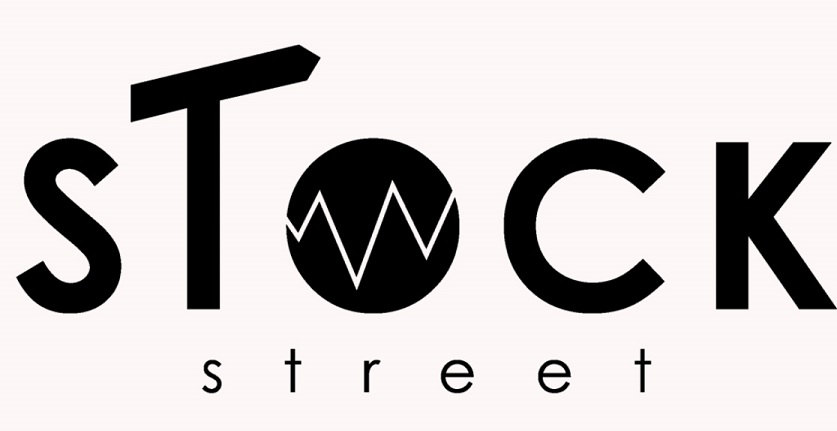Five years ago, I found myself in a buffet line during a local event in Orlando, Florida. I was starving, and my blood sugar was dropping like a newly released Taylor Swift album.
In my sights was a large slab of roast beef screaming “eat me!” as the caterer sliced juicy tender cuts from under a heat lamp. During my food-induced trance, I stared at the roast beef with a look in my eyes as if she were walking down the aisle during our wedding ceremony.
I was so hungry, I really wasn’t paying attention to my two friends whom I had run into during the event. But, a topic came up that snapped me out of my roast beef hunger trance, and back to real life.
One of my friends, Bobby, was an advisor at Merrill Lynch and, at that time, I was a rep. with a financial group in town.
Our friend, Jon, asked a question I am sure you have asked before, and are probably asking yourself right this very minute, “Should I invest in a Roth or traditional IRA?”
You would think when two financial guys are posed with a straightforward question about investing in a Roth vs traditional IRA, you would get the same answer. The response, however, couldn’t have been different.
Money is weird
Money can be a perplexing, elusive, intangible little rascal. In fact, a lot of what we read about money can be summed up as theory and even opinion. There is no overarching answer to many questions about money, whether regarding investing in a Roth or traditional IRA, or even the proper asset allocation of stocks and bonds.
This monetary theory is inherent in our responses to Jon’s question about investing in an IRA to receive a tax deduction today, or to invest in a Roth IRA with post-tax dollars.
I told our friend he should be adding money to his Roth IRA, while my Merrill Lynch friend told him he should be investing in his IRA.
The thing is, we both had very logical points and strong conclusions. Again, decisions regarding money, whether it be Roth vs traditional IRA, proper asset allocation, you name it, is theoretical.
So, which answer is the right answer? Should you invest in an IRA or a Roth IRA?
How about I tell you the points we both made, and just let you decide? Sound like a deal? Great, let’s go!
You may also enjoy reading my article: How to Invest in the Stock Market – 11 Simple Steps for Millennials
Tax deductions
An important note before moving any further is that neither Bobby nor I knew the financial situation of Jon. Yes, we are friends, but we don’t know how much money Jon makes, we don’t know if he manages his money well, we don’t have a clue about his financial picture.
This is great because I don’t know a thing about YOUR financial picture. I’m just writing this broad allegory and letting you decide who you are, and which of these arguments are best fit for you.
Bobby’s point about tax deductions
Bobby’s main point was that Jon knows for a fact he will receive a tax deduction if he adds money to his IRA TODAY. His main argument was that he knows he will get this tax deduction. The way Bobby thinks, there is no way of knowing if ten or fifteen years from now, we will still be provided the opportunity to receive tax deductions for IRA contributions.
And, guess what, Bobby has a point. Maybe congress changes IRA rules one day? Maybe congress lowers the IRA (or 401k) amount one can contribute to a retirement account? It is possible that one day no money can be added to an IRA without paying tax.
This is a valid argument Bobby makes.
My points about tax deductions
The way I see it, there will likely always be an opportunity to invest SOME money in an IRA and defer taxes on that money. I believe there is a very small chance Congress does away with this one day, but I don’t see this as very likely. In fact, I think it is more likely that, instead of doing away with IRA tax deductions, Congress lowers the amount of the IRA tax deduction. This makes more sense to me then Congress just doing away with modern-day IRA deductibility.
Obviously, Bobby and I differ here, and these are just two options. We have no way to know for certain what happens in the future; we only have predictions and gut feelings on this one.
Maybe I am wrong and maybe Bobby is wrong; this can be chalked down to pure opinion.
Tax brackets
When it comes to tax brackets, some financial gurus tell you to consider if you will be in a lower tax bracket when you retire. If you find yourself in a lower tax bracket during retirement, you will pay fewer taxes with a traditional IRA.
For example, if you add $5,000 to an IRA today and you are in the 25% tax bracket, you won’t pay the 25% tax this year on the $5,000. Instead, you will defer your tax on the $5,000 and pay tax at your future tax bracket (when you withdraw the money).
If you withdraw the money when you are 65 years old, you may be in a 20% tax bracket, in which case you will pay less tax. However, you could also wind up in a 30% tax bracket, or a 35% tax bracket, in which case you will pay more taxes than if you instead added your money to a Roth IRA.
Bobby’s point about tax brackets
The way Bobby sees it, he doesn’t think Jon will be in a higher tax bracket when he retires.
This is a very common idea in the world of finance; many believe that, during your working years, your income will be taxed higher than it will be when you are retired. Bobby believes Jon will have less income to show on his taxes when retired. He thinks when combining social security income and withdrawals from his IRA accounts, he will still be in a lower income tax bracket when retired.
This is a valid argument and a popular argument.
My views on tax brackets
I made the argument that tax brackets, in general, may increase.
Historically, we are in a favorable period of income taxation. While Bobby thinks Jon will be in a lower tax bracket, I believe tax brackets could increase, in which case Jon may retire into a higher tax bracket than he is today.
If tax brackets increase, it is possible that Jon pays more than a 25% tax on the $5,000 in the above example.
Maybe in the year 2040 Jon will file his taxes, and he will show he makes even less income than he did this year (adjusted for inflation), yet, he pays 28% in taxes or maybe 32% in taxes etc… My argument was that Jon doesn’t know if he will pay more money in taxes when he distributes the money.
Also, there is a chance Jon has fewer deductions when he is in retirement. Maybe he pays off his mortgage and no longer deducts the interest. Jon has kids and receives exemptions for his children; he won’t have those exemptions when he is retired.
I don’t think Jon will necessarily be in a higher tax bracket during retirement, I just think the chances are much higher than Bobby does. Again, both of us make good arguments.
Liquidity
Traditional IRA’s are both bad and good when it comes to accessing your money.
On the one hand, a traditional IRA is a very bad place to hold money if you need that money before retirement. The early distribution comes with a likely 10% penalty, then income taxes will be paid (there is a way to distribute money early, called 72-T, but you will have to take “substantially equal periodic payments”).
On the other hand, maybe you shouldn’t be needing access to your retirement money anyway? Maybe the fact that is it locked up behind taxes and penalties will prevent you from spending it on a Corvette during your mid-life crisis?
Bobby’s points about liquidity
Bobby views the lack of liquidity as a positive aspect of the traditional IRA. He thinks those who save for retirement need to keep their money invested, and the traditional IRA helps prevent investors from taking early distributions due to the10% early withdrawal penalty. Bobby welcomes the illiquid nature of the IRA before age 59 ½ (the age when the 10% penalty goes away).
My points about liquidity
I just don’t like locking up money in accounts having withdrawal penalties.
While I agree with Bobby that some investors don’t take early withdrawals because of the 10% penalty, I still see many people distributing money early from traditional IRAs and paying penalties and taxes.
A Roth IRA has more favorable tax advantages in this regard. For example, if Jon has credit card debt with a high-interest rate, I view it as better to pay down debt than keep the money invested. He could use his Roth IRA for this and not pay taxes and penalties (as long as he doesn’t distribute investment gains).
Also, if Jon wishes to one day test his hand at entrepreneurship, the Roth IRA can be a great source of capital. Of course, I would hope he manages the risk of entrepreneurship correctly. For example, investing in a cryptocurrency ICO isn’t exactly my idea of a prudent entrepreneurial investment…I’m thinking more along the lines of purchasing a 7Eleven. But, the money could be perfectly prudent for capital allocation.
The time you should never invest in an IRA
So far, Bobby and I have disagreed on pretty much everything. However, there is a scenario when both Bobby and I agree on not investing in an IRA.
That scenario is if you pay NO income tax.
If you make less than the income tax threshold, you shouldn’t be adding money to an IRA, because you don’t pay income tax anyway.
Think about the $5,000 scenario from above. If you add the $5,000 to a Roth IRA, you will pay no income tax on the $5,000 and you will add it to a Roth IRA. You will have $5,000 and a tax bill of $0 when you distribute the money (because you don’t make enough money to pay taxes).
If you add the $5,000 to a traditional IRA, you will owe $0 in income taxes, but you will DEFER your taxes into the future. When you distribute the money, you will pay whatever your income tax bracket is.
If you are in the 15% income tax bracket when you distribute the money in retirement, you will own 15% in income tax on the $5,000! As opposed to the Roth scenario, where you will pay no income tax now or in the future.
It is obviously not a good idea to add money to a traditional IRA when you pay no taxes.
Should you invest in a Roth or traditional IRA?
As you can see, Bobby and I have two completely different arguments about investing in a Roth vs traditional IRA. Both arguments are made by people who have knowledge of finance, yet our opinions that cannot be further from one another.
Whether it is the movement of income tax brackets in the future, the removal of IRA tax deductions by Congress, or the effects of liquidity on retirement plans, money is theoretical and complex.
These differing opinions regarding Roth vs traditional IRAs just strengthen my views on the illusiveness of money. Will income tax brackets increase in the future? Will IRA tax deductions be eliminated by Congress one day?
Who knows!
All we can do is use the information at hand, what we think will happen in the future, and make our best guess.
While I have no concrete answer for you, I do have an alternative idea – what if you just decide to contribute to both?
What if you decide to add some money to both an IRA and a Roth IRA (as long as you meet the Roth IRA investment guidelines)? Think of it as If you are diversifying your taxable accounts. You diversify your stocks and bonds to reduce risk, maybe by adding money to both a Roth and a traditional IRA you will also reduce your risk of taxation?
So, what is the answer? Should you invest in a Roth or traditional IRA? Did you decide?
I hope you are less confused about what to do…. if you are not, feel free to comment below. Maybe me or someone else will provide you with an idea I missed!
You may also enjoy reading about my stock portfolio: My Stock Portfolio
Interested in taking my FREE email course? Signup below!














